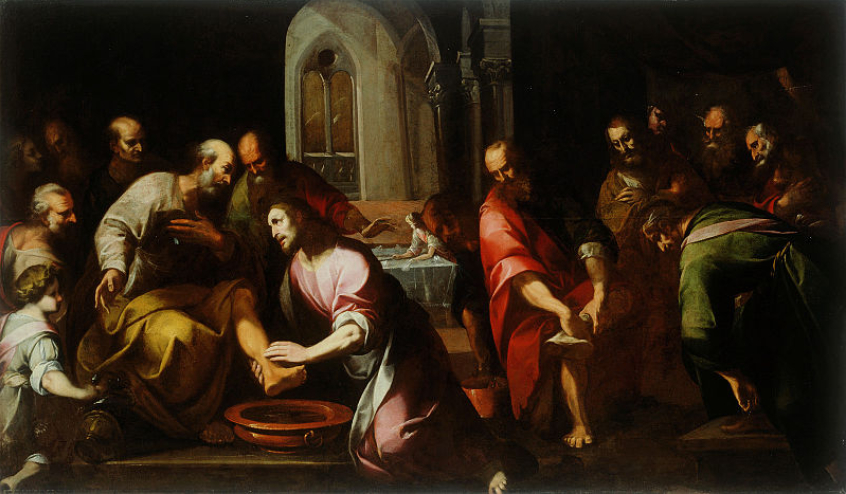
Today is Maundy Thursday, the fifth day of Holy Week in the Christian Easter tradition. It recalls the occasion of Jesus washing the feet of his disciples and sharing the Last Supper before his crucifixion on Good Friday.
Why is it called Maundy Thursday?
Tradition has generally located the name Maundy with the story of Jesus' foot-washing. The English word is derived from the Latin word mandatum, meaning 'command'. It draws on the Latin Vulgate rendering of John 13:34: 'Mandatum novum do vobis ut diligatis invicem sicut dilexi vos', in English: 'A new commandment I give unto you: That you love one another, as I have loved you, that you also love one another.'
With these words, Jesus explained the significance of his stooping and washing the feet of the disciples. In John 13:6-8, we see Jesus 'came to Simon Peter, who said to him, "Lord, are you going to wash my feet?"
'Jesus replied, "You do not realise now what I am doing, but later you will understand." "No," said Peter, "you shall never wash my feet." Jesus answered, "Unless I wash you, you have no part with me."'
Later in the chapter Jesus gives his 'new command'. Maundy Thursday then recalls Jesus' call to imitate his sacrificial love.
In condescending to serve his disciples, Jesus chose the path of humility. The disciples were astonished, but this momentary act was only a foretaste of the humility that Jesus would soon embody on the cross. Today in the 'mandatum' ceremony in the Roman Catholic Church, a priest will imitate Christ and wash the feet of 12 people in the community. Pope Francis has championed and developed the tradition, washing the feet of prisoners, refugees and others on the edge of society.
However, some argue against this interpretation of the day's origin.
Another possibility is that the name arose from 'maundsor baskets' or 'maundy purses' of alms (money, clothes or food) which mediaeval English kings would distribute to the poor of Whitehall before attending Holy Week's Thursday Mass. In this case, the 'maundy' is rooted in the Latin mendicare, a verb meaning 'to beg', or as a noun ('maund'), a basket used for begging. This would mean that the name 'maundy' is rooted not in Jesus' command but in the philanthropic tradition that happened to develop on that day. It is also possible that both are true, and that the royal tradition of 'maundy money' was itself rooted in Jesus' call to love and service.
Whatever the precise origins of the day, it has become an occasion to remember, and practically embody Christ's call to generous, self-giving love, imitating God's own love for humankind.













